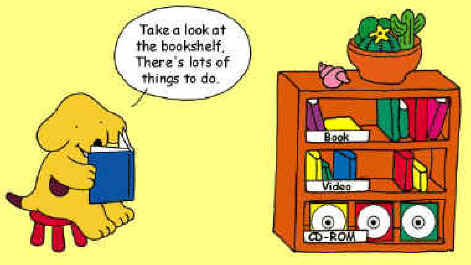Do you think libraries are becoming less relevant and that we need to take radical action to stop this? Whether you answered yes or no, now think whether your work colleagues and library users would answer the same as you did.
Blame that John Blyberg for my impertinent question. In his latest post, My ALA baggage , he identifies two camps growing among librarians – “those that believe libraries are in peril and those that don’t”. He continues with:
This dichotomy yields some interesting implications for discussions about the future of libraries and what we should be doing now and in the future. For instance, if you’re inclined to think that libraries are in danger of becoming irrelevant, you’re probably going to be more open to many of the more radical proposals and developments we’re seeing and hearing of today. Purists, of course, are just as vehement and passionate about libraries, but want to see the core values of their libraries shored up. To them, good old fashion reference and circulation is what libraries are all about.
So the question is, how do these two groups find a middle ground that will not compromise us into mediocrity? I’m skeptical about the prospect of creating more excellent middle-of-the-road libraries. That’s what most of us are right now.
He made me think about where I fit on the “Libraries in Peril” continuum. It’s not changed much since library school 18 years ago. Back then, I wrote a compulsory essay about “The Role of the Library in Today’s Information Society“. I concluded that librarians have extremely valuable skills in identifying, organising, accessing and providing information – essential and relevant skills to most organizations. BUT – unless we blow our own trumpets to vigorously market our skills and our library services, we will be ignored and cease to be funded.
Yes, we are in peril. Yes, we do need to take radical action…and a very good place to start should be to ensure that our users and our funding bodies value us for what we can do and become our active advocates. If we are no longer reaching our users with our traditional brand – which was “trusted, unbiased information and free books” – then we need to update or re-market it.
We have a culture of excellence, but not of promoting our role rather than our work. We’re used to modestly doing excellent work and letting that speak for itself. Today, Google is shouting louder.
Here’s some “trumpet blowing” ideas that go beyond “we do it good” brochures:
- If our users are forsaking our reference collections for Google, run classes in “how to use Google better“. Or “20 other places to look when you can’t find what you want on Google“.
- Repackage our traditional reference desk services as a “homework club” or “one-on-one assignment research help” sessions.
- Emphasize to our users the financial benefits of library membership.
- Academic, school and public libraries can find ways to support the administrative function of their organizations – become “go to” people to evaluate social software, subscribe to materials and provide research support to executives who administer the organization, offer meeting rooms in the library building for the organization’s use.
- Seek working partnerships with other people in our organizations or our communities. Intertwine their fate with ours. Records managers, PR folk, local hobby clubs, businesses, educators are all possible partners for joint projects.
- Conduct a survey of library “non-users” from our target client group. Provide a small promotional gift for answering the survey, one that needs to be picked up from the library front counter.
- Target new audiences with traditional services. Review the “homebound” delivery service to include mums with kids under 5 as well as the infirm, or conduct a storytelling session aimed at senior citizens. Create a “leisure reading” collection in an academic or special library.

